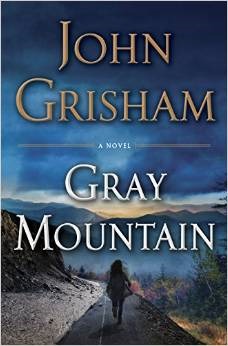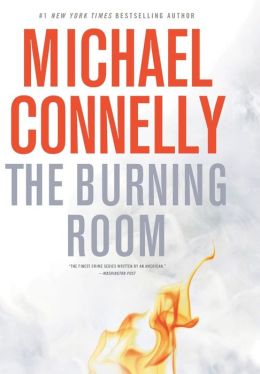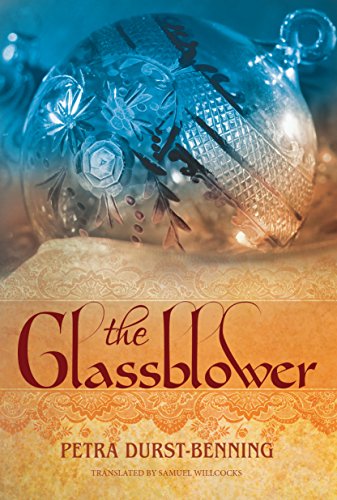As the years passed and the sting of
defeat subsided, Dad fully embraced his new life. Nothing gave him greater joy
than being at Walker's Point with his family. He loved to organize tennis
matches, pitch horseshoes, play speed golf at Cape Arundel (scoring was based
on a combination of strokes and time), and entertain a constant stream of family
and visitors. Perhaps his favorite thing to do was fire up his Mercury-powered
Fountain speedboat, the Fidelity, and race through the water with the throttle
at full blast. At age seventy-nine, he sent an e-mail to his grandchildren
boasting that he had topped sixty miles per hour. "I felt about 19 years
old," he wrote. While he followed politics closely, he was content to
stay out of the arena. He liked to describe his role in the words of a Mandarin
adage: "Stand on sidelines hands in sleeves."
Although Dad was retired from
government, he was not finished serving. He gave his time and his name to causes
that mattered to him, just as he had all his life. He served as Chairman of
the Board of Visitors at the MD Anderson Cancer Center in Houston, a widely
respected cancer hospital. He founded the Bush School of Government and Public
Service at Texas A&M, and he loved to drop into classrooms as a surprise
guest lecturer. He supported military charities and visited troops around the
world. Mother continued to serve as well, creating the Barbara Bush Foundation
for Family Literacy and reading books to children every summer at the Maine
Medical Center in Portland. Throughout their lives, George and Barbara Bush
have been two bright points of light.
Mother and Dad have traveled widely
in their retirement. Dad loved to fly-fish, and he visited some of the world's
greatest spots: Islamorada, Florida, with his friend Ted Williams; Canada with
his grandson Jeb Jr.; and the river Test in England. He kept the family golf
tradition alive by serving as the honorary Chairman of The First Tee and
attending Ryder Cup and Presidents Cup matches. Occasionally he used his status
as a former President to get himself invited to great golf courses like Augusta
National or Pine Valley. And he loved to assemble interesting foursomes, such
as the time that he and Jeb played with Arnold Palmer and Joe DiMaggio.
In November 1998, Mother and Dad
took one of their most meaningful trips when they chartered a plane to Florida
to be with Jeb on election night of his second race for Governor. He ran a
great campaign and won 55 percent of the vote. For the first time in more than
two decades, brothers served together as Governors. Mother liked to point out
that one in eight Americans lived in a state governed by one of her sons. Dad
expressed his pride a little more quietly. On the day before Jeb's election, he
wrote, "People will call to congratulate us, but they will never begin to
know the true depth of my feeling toward my sons. It will be what life is
really all about for me right now."
I too was thrilled that Jeb won. In
our early years, our seven-year age separation seemed to matter, but as we got
older, we became not only brothers but friends. He is a man of conviction with
a great deal of inner strength. I was confident that the people of Florida
would benefit from his leadership -- and I was right. He was a strong and
accomplished Governor.
After my 1998 reelection as
Governor, Dad predicted that speculation about a presidential campaign would
follow. He was sure right. Prospective advisers, fund-raisers, and organizers
all over the country urged me to enter the race. As I told Washington Post
reporter David Broder, I felt like a cork in a raging river. I was determined
not to get swept away. I would make the decision for the right reasons and on
my own terms.
More than any presidential candidate
in recent history (with the exception of Hillary Clinton), I knew exactly what
I was getting myself into. For all the so-called burdens of the presidency, I
knew how much Dad had loved the job -- the honor of leading a great country and
the opportunity to make decisions that would change history. After my
experience as Governor, I felt that I could handle the work. I understood the
scrutiny that my family would face, and I was concerned about our daughters.
But I had learned from my father's experience that it was possible to serve as
President and leave office with your family stronger than before.
Mother's example also gave me
confidence. One of her great contributions to my father's political career was
ensuring that he never had to worry about whether she could handle the pressure
of the presidency and at the same time hold our family together. That
confidence is liberating. I was blessed that Laura gave me the same peace of
mind.
Finally, I believed, as Dad did, in
living life to the fullest -- in pushing yourself to your limits and working
hard for the causes in which you believe. I believed strongly that America
needed a new direction on issues like education, taxes, and military readiness.
And I believed that I could help provide the leadership that the American
people sought.
I never felt the need to ask Dad for
a direct opinion on whether I should run. I knew he would support whatever
choice I made. And I knew from watching him my whole life that he believed
everyone has a duty to serve. After a lot of soul-searching, I decided to give
it a shot. I announced my candidacy on June 12, 1999 (coincidentally, my
father's seventy-fifth birthday).
I was aware that there would be
inevitable comparisons between Dad and me, some good and some not. He had
assured me that I should feel free to criticize any of his decisions without
fear of offending him. As he wrote in a 1998 letter to Jeb and me, "At
some point both of you may want to say, 'Well, I don't agree with my Dad on
that point' or 'Frankly I think Dad was wrong on that.' Do it. Chart your own
course, not just on the issues but on defining yourselves. No one will ever
question your love of family -- your devotion to your parents."
When reporters would ask how my
father would affect the race, I joked that I had inherited half of his friends
and all of his enemies. The truth was that he didn't have many enemies, and I
was able to pick up many of his friends. I had no qualms about Dad's friends
supporting me. I was running against a sitting Vice President at a time when
the country appeared to be secure and the economy appeared to be strong. And
as it turned out, I needed every vote I could get.
 |
| Pays rich tributes to his father |
On election night, Mother and Dad
led a huge convoy of family to Austin. A celebration began late in the evening
when Vice President Gore called to concede the election. He then called back a
little later to retract his concession. My lead in the pivotal state of Florida
was less than a thousand votes -- too close to call. A multiweek recount began.
I asked Jim Baker to lead my legal team in Florida, while Laura and I retreated
to our ranch in Crawford, Texas, to await my fate. Dad on the other hand was
obsessed by the news. He constantly called Karl Rove and Jim Baker for updates.
He called me frequently too. I could tell by the tone of his voice that he was
worried. "Dad, I'm at peace," I said. "Stop watching TV."
Eventually, the legal dispute worked
its way to the Supreme Court. On December 12, 2000, thirty-five days after the
election, the Court delivered its judgment. By a vote of seven to two, the
Justices determined that Florida's haphazard recount process violated the equal
protection clause of the Constitution. And by a vote of five to four, they
concluded that Florida could not complete a fair recount in time to meet the
deadline for the Electoral College. The electoral count stood; I had won. After
receiving the news that I had been elected President, the first phone call I
made was to Mother and Dad. They were thrilled.
The next day, I addressed the nation
from the Texas state capitol. As Mother and Dad watched the speech on
television from bed at their home in Houston, the reality of the moment hit
them. Dad later wrote, "I saw a couple of shots of George and Laura holding
hands. I saw in his posture, in the way he walked, in his smile the same
mannerisms and expressions we have known ever since he was a little boy."
He continued, "As the camera focused on George and Laura walking into the
chamber my body was literally wracked with uncontrollable sobs. It just
happened. No warning, no thinking that this might be emotional for a mother or
dad to get through -- just an eruption from deep within me where my body
literally shook. Barbara cried, too. We held hands. Just before he began to
speak we saw in George's eyes the emotion he was feeling. We know it so well.
He did not 'lose it,' but he was clearly moved and his mother and father knew
it for fact certain."
Shortly before the moment that so
moved Dad, Vice President Gore had delivered a gracious speech conceding the
election. That prompted an unexpected phone call. George H.W. Bush called Al
Gore to congratulate him on his strong campaign and courageous speech.
"I've lost a few times myself," Dad told him, "and I know how
you feel."
AVAILABLE WHEREVER GOOD BOOKS ARE SOLD 11/11
_____________________________
Reprinted from "41: A Portrait
of My Father." Copyright © 2014 by George W. Bush. Published by Crown
Publishers, an imprint of Penguin Random House LLC.















